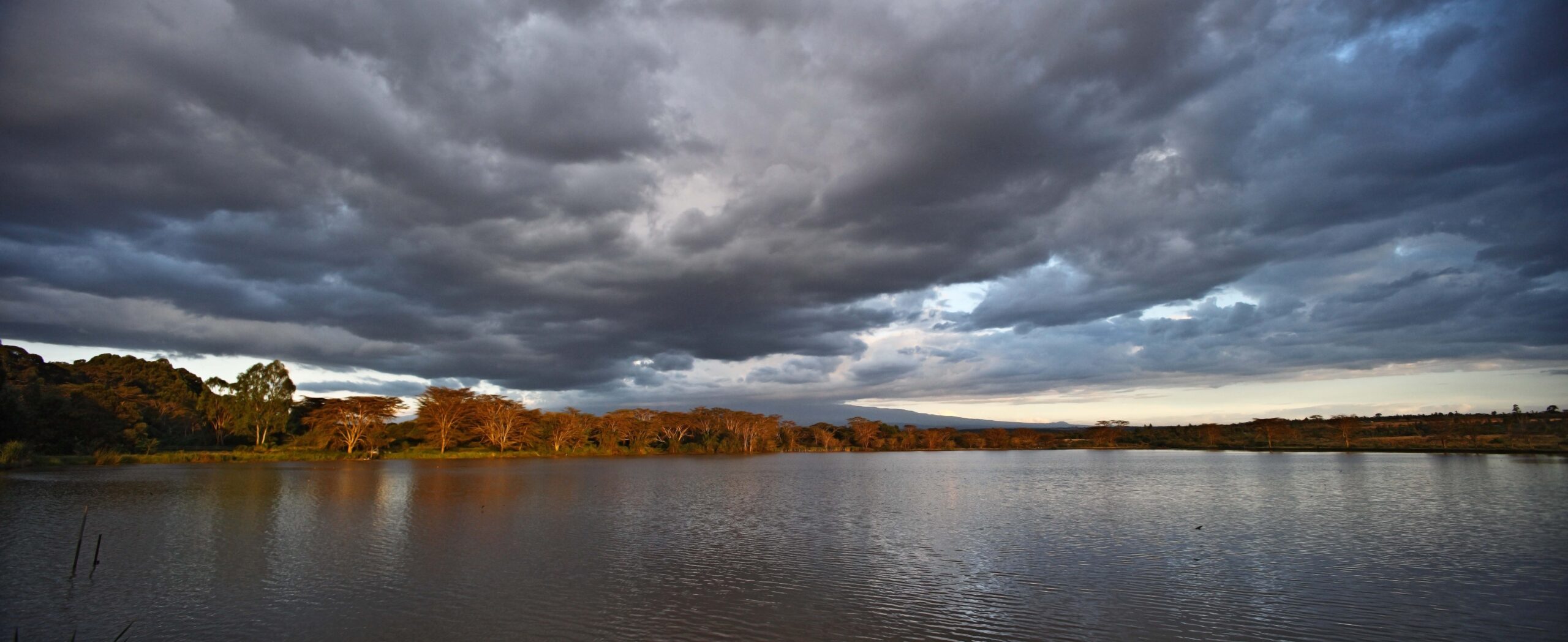Around us
From the very start, Tambuzi has believed in Shared Value – we just didn’t know it was called that back in the day. For us it means a philosophy that if the communities of those who work on the farm and those who live around the farm are stronger, then Tambuzi as a company will be stronger. If we build value, then the smart and sustainable thing to do is to share that value in any way that we can. So we look to create partnerships and networks everywhere that we operate, both internally and externally.

These relationships include Welfare Committees within the farm, partnerships with local institutions including schools, youth groups and the local Government Dispensary and active membership of the Waitrose Foundation. Of course, there are donations involved but the critical contribution is time spent looking at problems and jointly finding innovative solutions. What we do is not CSR, it is driven by a belief that these networks and partnerships are the ways to build stronger companies, industries, communities and countries.

Education, Health, Environment
The salaries of Tambuzi’s employees have far reaching benefits to the wider community. Increased disposable income in this poor region boosts small business such as local shops and transport services, and the knock-on effect is significant. Tambuzi currently employees over 400 people and these wages help to support over 2400 people.
Employees on the farm have benefited from various projects as a result of our partnership with Waitrose Foundation. Projects have included loans to purchase domestic solar kits, home gas cylinders, second hand bikes from Amsterdam and most recently, refurbished laptops through Digital Pipeline.
Over the years, Tambuzi and our partners have sponsored various initiatives depending on the current most pressing needs of schools in the area. These have included: school feeding programmes; building kitchens and purchasing energy saving stoves; building a dining hall; supplying new desks; hiring additional teachers; providing solar reading lights for pupils to assist with homework; giving trophies for academic performance; constructing urgently needed toilets; funding water catchment infrastructure; arranging electricity connection to the grid; purchasing science lab equipment; buying desktop computers, and providing transport to deliver exam papers on behalf of the Ministry of Education.
Believing strongly in private-public partnerships, Tambuzi partially funds the government-run Burguret Dispensary, which serves the community and maintains a close relationship with the management committee, nurses and the Ministry of Health. Tambuzi has organized a free medical clinic, which treated over 1000 patients and connected the Dispensary to the grid. The Fairtrade Committee assisted the Dispensary to purchase urgently needed lab equipment and employed the Lab Technician when the Ministry of Health were unable to do so. The Tab Tech salary has now been absorbed by the Government payroll, however Tambuzi continues to make a financial donation to the Burguret Dispensary monthly.
To promote HIV/AIDS awareness, we invited S.A.F.E to bring their plays to our staff and schools in the area. In addition, Tambuzi provides employees with access to voluntary free and confidential VCT testing.
The Ministry of Health relies on Tambuzi to provide transport for a week every year for the Polio Vaccination drive that hopes to stamp out polio once and for all.
Sources of funds towards Workers projects have been from A Rosier Life Trust and Waitrose Foundation Premium.
When it comes to the environment, we believe that we have to lead by example and strive to live by the best practices in the industry. We keep in mind that although the farm is a flower farm at present, who knows what the land will be needed for in the future. So we are custodians of the long-term future of the soil and the environment, rather than mining it for short-term gains. Tambuzi uses as much biological control as possible whilst exploring new methods and is actively working with Kenyan based companies to trial these. Integrated Pest Management is key to our efforts. We work with Real IPM and a number of companies who offer Biological products to constantly evolve techniques in controlling pests.
Other Sustainability include:
- Soil Health Improvements through increased regenerative agricultural and land management practices (proper green waste composting, increased mulching, crop diversification, continued focus on application of organic matter, increased soil carbon sequestration and crop rotation)
- Continued focus and efforts on improving accumulation of carbon in soils by applying biochar.
- Increased Use of organic fertilizer alternatives to inorganic fertilizers (manure, compost, use of Bio-slurry, vermi-compost, worm tea and lucerne tea)
The Burguret River flows off the slopes and forests of Mount Kenya and through our farm. Tambuzi is a founding member and ongoing supporter of the Burguret River Water User Association (BRWUA). This body advocates legal water usage and proper water use. It carries out soil and water conservation practices within the critical catchment area and on riparian land. Water is a precious resource, and Tambuzi has developed a huge 6-hectare dam, which is fed only when the Burguret River is in spate in the rainy season. In addition, we collect all the rainwater from our greenhouses, which can provide up to 50% of our annual needs. The pack house is served by a borehole, which provides clean water.

For our wastewater, Tambuzi has developed a natural wetland, processing grey water from the pack house, canteen and laundry. The filtration system uses a series of beds and ponds with papyrus reeds and other water-based plants including water hyacinth. As a result of this, 50% of grey water is recycled and used for irrigation. However, we are not complacent on the issue of water and are constantly looking at additional ways of conserving this most important of natural resources.
It is hard to exaggerate the opportunities for solar solutions in Kenya. We sit bang on the Equator and enjoy 12 hours of sunshine every day of the year. So Tambuzi has invested heavily in solar power for our daytime use. Our solar plant runs our cold stores, pumps and offices. Significantly reducing our carbon footprint, not only is it good for the planet, it’s good for our bottom line – a win-win. Click to read more.
We bought a farm in 1996 full of trees that had been planted years before, and since that time Tambuzi has invested time and funds into the maintenance and development of its trees and woodlots, which cover a third of the farm in both exotic and indigenous species. Since 2005, our tree count has more than doubled, currently standing at nearly 34,000. We welcome neighbouring community groups to Tambuzi, giving them a tour of our forestation programme. We raise and sell tree seedlings, and try to motivate the next generation of Kenyans to carry out tree planting activities.
Bees are important to all of our futures – As Einstein said, “If the bee disappeared off the surface of the globe, then man would have only four years of life left. No more bees, no more pollination, no more plants, no more animals, no more man.” In 2010, Tambuzi initiated a bee-keeping programme, with 120 hives. With a great decline in the population of bees worldwide, Tambuzi hopes to make a small difference by offering habitat and space. Also, as bees are a natural indicator of environmental health, they act as a barometer for our environmental impact. Feeding mostly on Tambuzi’s untreated herb crops of lavender, mint, rosemary, the honey is light, fragrant and in high demand.

As the area’s largest employer, Tambuzi has created more disposable income in the Burguret community, and small businesses – many services such as shops, cafes and taxis – have evolved. Despite this boost to a relatively poor community, there is one negative impact: litter! Though a national problem, Tambuzi is taking responsibility in tackling the issue. To combat the escalating problem, litter collection is carried out three days a week, and permanent disposal solutions have been installed along our road.
We are really proud of what we do around us and it is good to get a third party to check it out so that we don’t get high on our own supply so to speak. Some say that we are certification junkies, but we believe that this is the best way to make sure that we don’t just rely on our own assessment of our activities. Codes of practice – mostly related to the workers and the environment – are assessed through annual audits by various bodies both Kenyan-based and international.
KENYA FLOWER COUNCIL
Kenya Flower Council is an association set up in 1996 to represent Kenyan flower growers and exporters, on issues related to environmental and social standards. It has an internationally recognised code of practice and an accreditation scheme, and Tambuzi is proudly one of only three ‘gold’ members in the entire Kenyan flower industry.
FAIR FLOWERS FAIR PLANTS (FFP)
A European based label for consumers, which gives an economic incentive to flower growers who respect their people and the environment. Products are presented to consumers under the label ‘FFP’.

 Loading
Loading





